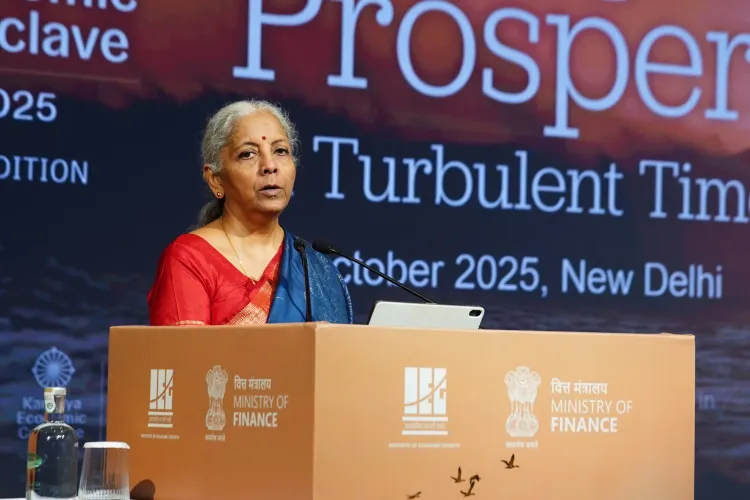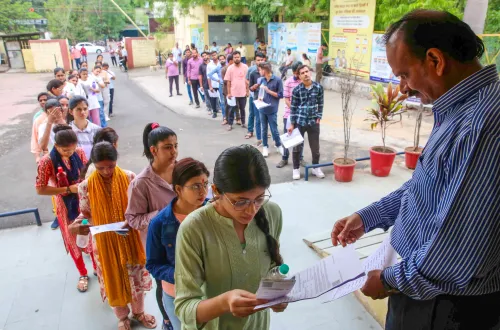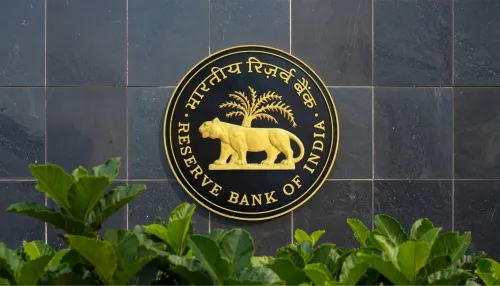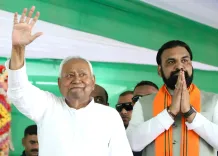Is India’s Growth Resilient Amid Global Volatility?

Synopsis
Key Takeaways
- India's growth is resilient due to strong domestic factors.
- Active participation in global economy is crucial.
- Aiming for 8% GDP growth is essential for the nation's aspirations.
- Current challenges signify a structural transformation.
- Self-reliance should not equate to isolationism.
New Delhi, Oct 3 (NationPress) In a time marked by unprecedented global volatility, where the rules of international engagement are undergoing significant changes, Finance Minister Nirmala Sitharaman emphasized that India’s growth is firmly anchored in domestic factors, highlighting the nation’s resilience in facing global challenges.
She pointed out that India’s strong domestic foundations mitigate the risks posed by global uncertainties.
“We are navigating a changing global environment that resembles a zero-sum game. The Indian economy is resilient and continues to grow sustainably,” FM Sitharaman remarked during her keynote speech at the ‘Kautilya Economic Conclave 2025’ held in the national capital.
“Our goal of becoming Viksit Bharat by 2047 through self-reliance doesn’t equate to becoming an isolated economy. Achieving an 8 percent GDP growth is essential for reaching our aspirations as a developed nation,” she conveyed to the audience.
According to the Finance Minister, passivity is not an option in today’s dynamic world.
“We need to be proactive participants. Countries must navigate new monetary frameworks. No nation can completely shield itself from systemic transformations; engagement is imperative. Tariffs, sanctions, and decoupling strategies are reshaping global supply chains. It is essential for international institutions to adapt to contemporary realities,” she underscored.
She further noted that the current challenges are not merely temporary disruptions but indicative of structural transformation.
“The magnitude of the challenge is considerable. It is essential to recognize that we are facing a structural shift,” she stated.
“The global community is striving to escape uncertainty, and the existing global order is evolving. The world that emerged post-Cold War and advocated for globalization appears to be fading. The rules of engagement on the international stage are being rewritten,” she highlighted.
FM Sitharaman also mentioned the shifting global landscape, with multilateral institutions currently eroding confidence within the international community. She referred to the recent G20 discussions that focused on necessary reforms in multilateral institutions to restore stability.
Emphasizing India's dual approach, the finance minister reiterated that the nation aims to achieve developed economy status by 2047 while also enhancing self-reliance, clarifying that self-reliance does not mean pursuing an isolationist economic strategy.









